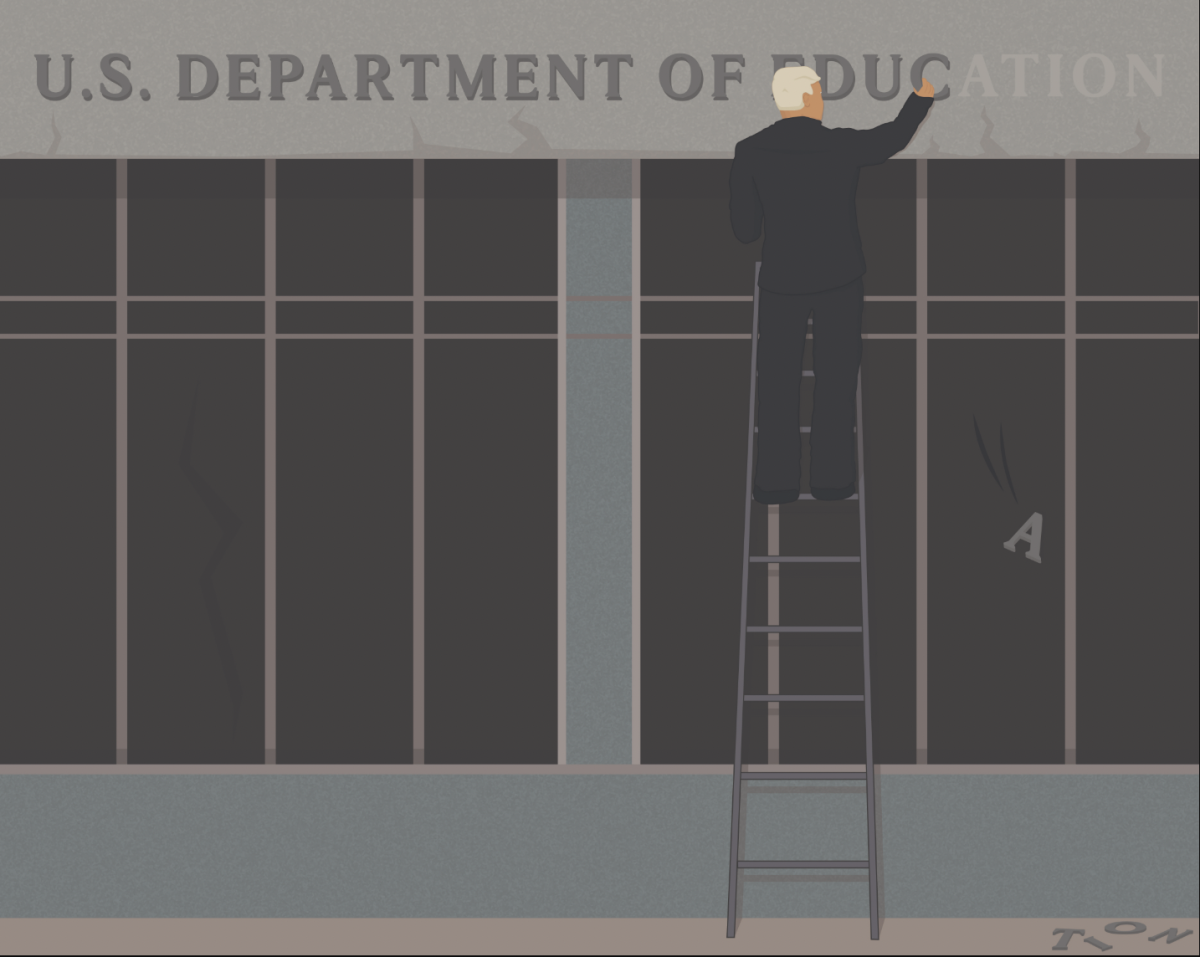In November, Prop A, an ordinance decriminalizing the possession of small amounts of marijuana in San Marcos, was passed with nearly 82% of the vote. However, the San Marcos Police Department said it wouldn’t adopt a formal policy.
SMPD is not arresting or issuing citations for small amounts of marijuana, but the ordinance is not clearly outlined in city law.
Without a formal ordinance, it opens the door to the policy potentially fading into obscurity, even after voters expressed support for an official law — not a spoken change of behavior.
This is a direct attack on San Marcos voters, and it shows a level of disrespect from the local police department. Police Chief Stan Standridge is aware of what his city wants, yet he refuses to take action, stating that he has “sworn to uphold the laws of this state.”
Texas has a long history of suppressing the voices of its voters. More recently, college students have found themselves at risk of losing their little representation in the Texas government because of legislation like House Bill 2390, which would ban polling locations on college campuses.
The dismissal of Prop A has the potential to take voter suppression in the state a step further. The voters who passionately took their voice to the ballot boxes are being told their decisions do not matter. The refusal to outline a formal policy for Prop A could lead them not to return.
Texans showed out across the state in the past two midterms, more so than in the two decades prior. As a result, the proposed ordinance received 1,000 more votes than any other city election during the 2022 midterm. This shows that mobilizing voters, especially young voters, can have massive impacts on elections but must continue after being in the voting booth as it takes an intense push to get through the red tape.
Texas has accounted for 12% of the nation’s marijuana possession arrests from 2017-2021. According to the Texas Tribune, 21,265 people serve time in Texas jails because of marijuana charges. Of the roughly 600 inmates in Hays County Jail, at least 50 were accused of possession of marijuana between 2020 and 2021. As other states move toward decriminalization and legalization, Texas has continued to set the wrong example.
Each year, the U.S. government spends more than $3.6 billion enforcing laws on possession. Taking steps to decriminalize marijuana is crucial in Texas and the U.S. as a whole. Instead, we could use the money enforcing these laws and direct them toward more urgent matters.
The prohibition of marijuana is a clear waste of federal resources. By legalizing and taxing cannabis across the U.S., there is potential for the government to bring in revenue. In Washington State, for example, the marijuana tax revenue was roughly $614.5 million in 2020.
President Joe Biden has shown his support for the move toward decriminalization by pardoning those federally charged and having legislation passed through the U.S. House of Representatives.
In July 2020, the Austin Police Department stated that its officers would no longer arrest individuals for possession of marijuana. Instead, they would only confiscate the substances. Although this did not directly qualify as the decriminalization of marijuana, it showed progress.
The ordinance has since been turned into a policy and put into the city code. The success in Austin shows that it is also possible in San Marcos, but our officials are choosing to refrain from taking action.
Medical marijuana is on the rise in many states, including Texas. The Compassionate Use Program (CUP) allows physicians to prescribe low-THC for specific medical conditions such as epilepsy, autism and terminal cancer.
The Veterans Association now prescribes medical marijuana. According to a 2019 study, just over 12,000 veterans reside in Hays County. Because the use of marijuana is not always for recreational purposes, SMPD should not have to think twice about officially putting Prop A into effect.
SMPD’s decision not only sends the message of a faulty representative democracy but also can potentially stop young voters from using their voices to make a change. No matter the legality of marijuana, SMPD should follow the city ordinance that was decided last November.
Texas State University operates outside of city ordinance and sets its own drug policy, and is therefore unaffected by Proposition A.
Categories:
Main Point: The city should uphold the law its citizens voted for
March 29, 2023
0
Donate to The University Star
Your donation will support the student journalists of Texas State University. Your contribution will allow us to purchase equipment and cover our annual website hosting costs.
More to Discover



















